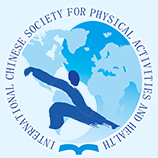Document Type
Article
Keywords
motivation, epistemological beliefs, instructional models, confidence, interest
Publication Date
4-2022
Abstract
Teachers’ beliefs about epistemology – that is, their personal broad mental representations about the nature of reality, knowledge, and how people know and learn – have been associated with the many educational outcomes both in the classroom and in physical education. Little is known about whether these beliefs predict physical educators’ value (i.e., interest, importance, like, and usefulness) and self-efficacy (i.e., confidence in performing) for using constructivist teaching models such as sport education and teaching games for understanding. As a result, this study examined path associations from beliefs about epistemology (epistemic worldviews and epistemological beliefs) to value and self-efficacy for sport education and TGfU in prospective physical educators. The sample consisted of 317 undergraduate students enrolled in a large (19,000 student) public university in south-central Canada. These participants completed a survey lasting approximately 10-12 minutes near the conclusion of one of their elective university classes in formal individual-dual games/sports (third year) or formal team games/sports (fourth year). Results revealed that students on average held more to a constructivist than a realist epistemic worldview, held relatively low unavailing epistemological beliefs for games (e.g., stable and simple knowledge that is learned quickly, and had high value and self-efficacy for sport education and teaching games for understanding. The path analyses revealed an excellent fit of the model to the data for these constructivist instructional models with each pathway significant for teaching games for understanding and three of the four for sport education. The results signal that prospective physical educators may be more susceptible to having less value and self-efficacy for using more constructivist instructional models if they believe games knowledge is relatively stable, objective, uncomplicated (simple), quickly learned facts derived more passively (rote learning) from mainly outer sources like expert teachers, coaches, and information resources. More efforts may be needed to uncover, explain, and account for underlying beliefs about epistemology prior to operationalizing constructivist instructional models such as sport education and teaching game for understanding.
DOI
https://doi.org/10.18122/ijpah1.1.8.boisestate
Recommended Citation
Lodewyk, Ken R.
(2022)
"Path Associations Between Preservice Physical Educators’ Beliefs About Epistemology and Their Value and Self-Efficacy for Sport Education and Teaching Games for Understanding,"
International Journal of Physical Activity and Health: Vol. 1:
Iss.
1, Article 8.
DOI: https://doi.org/10.18122/ijpah1.1.8.boisestate
Available at:
https://scholarworks.boisestate.edu/ijpah/vol1/iss1/8
Included in
Exercise Science Commons, Health and Physical Education Commons, Public Health Commons, Sports Studies Commons


